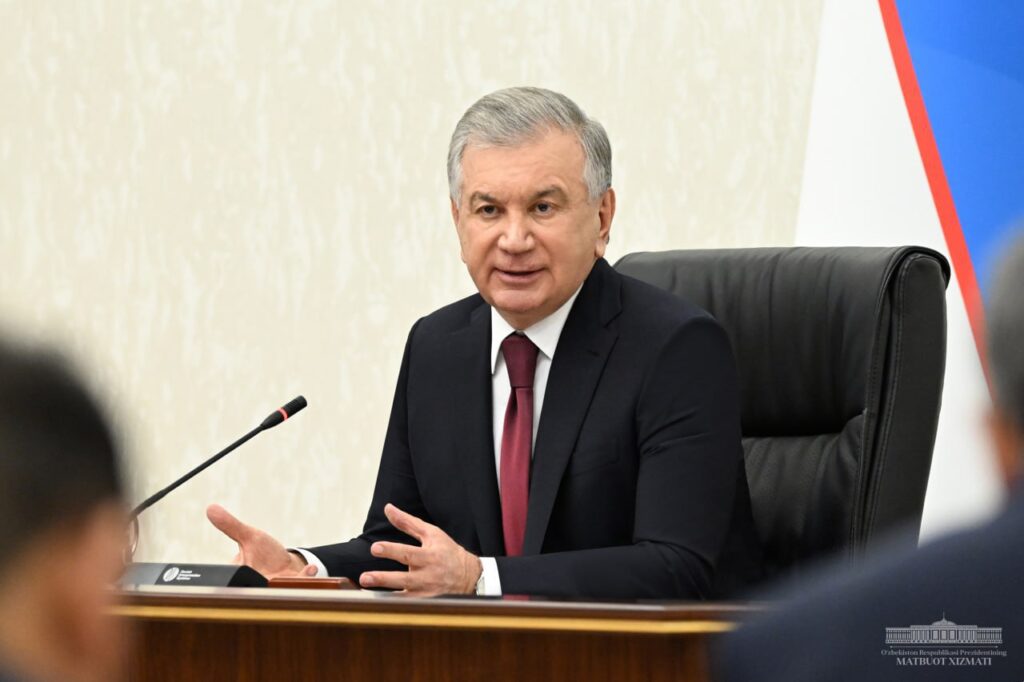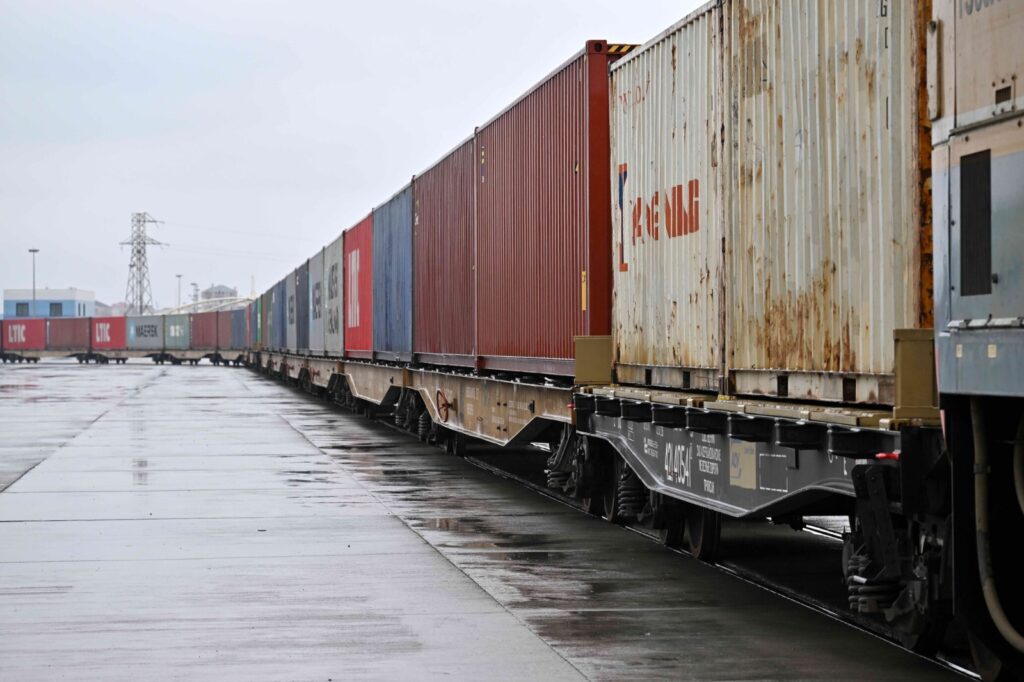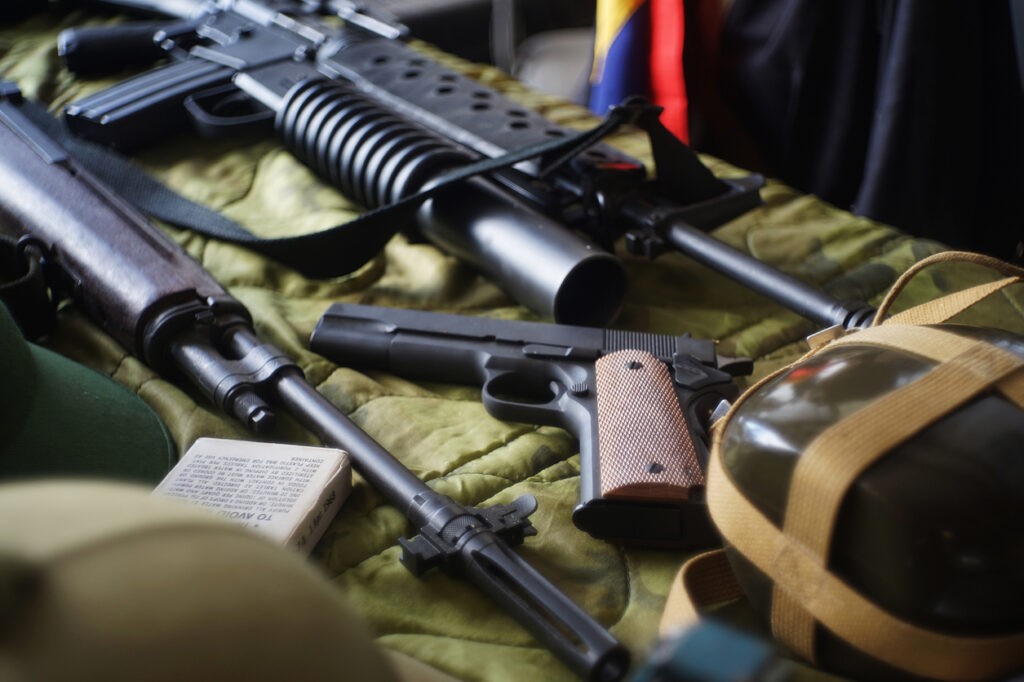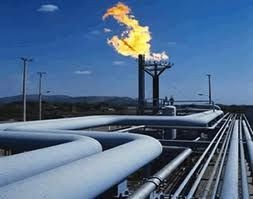OPEC’s secretary general appeared on the video screen in a conference hall in France and ticked off the statistics that have made Turkmenistan such a tantalizing prospect as an energy provider for Europe over the years, despite the convoluted geopolitics and high costs of moving natural gas from Central Asia to the West.
“It is among the top 10 global natural gas producers, and the fourth largest in terms of proven gas reserves. And it has plans to expand its oil production capacity,” Haitham Al-Ghais told delegates to the state-backed Turkmen Energy Investment Forum, held in a plush hotel in Paris on April 24-25. The speech from OPEC headquarters in Vienna was short and upbeat. It came at a time when Turkmenistan, a traditionally isolationist country, is seeking to diversify energy customers and as Europe reduces demand on Russian natural gas amid war in Ukraine.
Turkmenistan, which is not a member of the Organization of the Petroleum Exporting Countries, has long exported gas to China, its biggest customer. The Turkmen government says the construction of a pipeline that would deliver gas to India via Pakistan is making progress, though the infrastructure would pass through Afghanistan, where security is a perennial concern.
Last year, Turkmenistan’s foreign ministry spoke positively about plans for a Trans-Caspian pipeline that would deliver gas to Europe, an idea that has circulated since the 1990s but is opposed by Moscow. Also, gas demand has been dropping in Europe and Brussels is reluctant to revive the complex Trans-Caspian project and its undersea pipeline, according to the Warsaw-based Centre for Eastern Studies.
There has also been talk of sending gas to Europe through Iran under a gas swap agreement, though international tensions – evident in the recent strikes by Iran and U.S.-backed Israel on each other’s territory — are likely to persist.
“The options, including transport via the Caspian Sea and Azerbaijan or through Iran’s pipeline infrastructure, reflect the complex regional dynamics and the need for diplomatic agreements to facilitate gas transit,” Melike Akin wrote in a March 7 analysis for the Ankara Center for Crisis and Policy Studies, a research center. Ankara is the capital of Turkey, which said in March that it will begin receiving some Turkmen natural gas. Details on the delivery are lacking, but the transfer could serve as a playbook for Turkmen supplies to Europe, with Ankara positioning itself as a gas trading hub between Eurasia and the West.
President Serdar Berdimuhamedov of Turkmenistan said in a message to the Paris energy conference that priorities include collaboration with foreign companies on oil and gas facilities in the Turkmen section of the Caspian Sea, development of the huge Galkynysh gas field and construction of the TAPI pipeline to South Asia. The acronym stands for Turkmenistan-Afghanistan-Pakistan-India.
The president noted that Turkmenistan had made “significant progress” toward reducing emissions when it signed the Global Methane Pledge at the United Nations meeting on climate change, or COP-28, in Dubai in December. Under the agreement, more than 150 nations plan to cut methane emissions by 30% by 2030. Whether many countries can meet the voluntary commitment is in question. Some environmental groups have doubts about Turkmenistan, where an authoritarian system and a lack of government transparency can make it hard to get information.
On April 9 a team from the International Monetary Fund completed a trip to Turkmenistan and said afterward that transparency was vital to the country’s development of its vast energy resources.
“The main challenge for the economy is to use hydrocarbon revenues wisely to achieve more diversified, sustainable and inclusive growth. Transitioning to such a growth model will require implementing a more market-oriented diversification strategy, reforming monetary and exchange rate policy frameworks, improving the efficiency of public spending, and strengthening governance and transparency,” the IMF said. “Additional efforts to improve the availability, quality and reliability of economic statistics will help inform policymakers and enhance transparency and trust.”
The IMF said hydrocarbon production growth in Turkmenistan will stabilize at around 2% following economic turbulence related to the pandemic and its aftermath. It said the economy is likely to weaken over time because of “an overvalued exchange rate, lower hydrocarbon prices and reduced oil exports.”
One of the delegates in Paris was William O’Bryan, the economic and commercial officer at the U.S. Embassy in Ashgabat, Turkmenistan’s capital. According to Nebit-gaz, Turkmenistan’s oil and gas newspaper, O´Bryan, said the decision to hold the forum in Paris was “a sign that Turkmenistan is showing great interest in cooperation with a variety of countries.”








